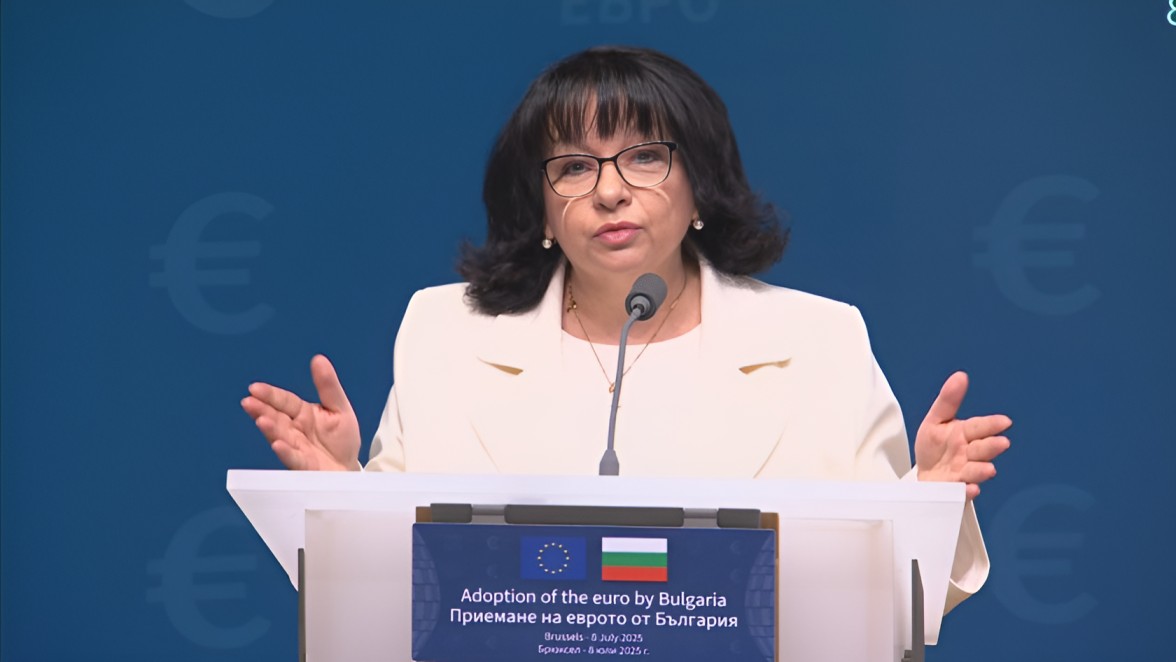EU set to approve Bulgaria’s eurozone entry in 2026

Bulgarian Finance Minister Temenuzhka Petkova hailed the moment as a major milestone.
European Union finance ministers are expected to give final approval on Tuesday for Bulgaria to join the eurozone on January 1, 2026, making it the 21st member of the single currency area.
This follows a green light last month from both the European Commission and the European Central Bank (ECB), which confirmed that Bulgaria now meets the stringent requirements for adopting the euro.
Bulgaria, which joined the EU in 2007, will transition from its national currency, the lev, to the euro marking nearly two decades of EU membership for the nation of 6.4 million people.
Speaking ahead of the ministerial meeting in Brussels, Bulgarian Finance Minister Temenuzhka Petkova hailed the moment as a major milestone. “Today is a significant step forward toward achieving one of our country’s strategic objectives,” she said.
Bulgaria’s path to the eurozone has not been smooth, marred by political instability with seven national elections held in just three years the most recent in October 2024.
Formal approval from EU ministers will come once they sign off on the legal documents required for Bulgaria’s entry into the euro area.
“This is clearly a historic day for Bulgaria. Congratulations,” EU Economy Commissioner Valdis Dombrovskis told journalists, noting that the expansion is also a positive development for the eurozone overall.
However, public opinion in Bulgaria remains split. Many citizens express concern over possible inflation and decreased purchasing power following the adoption of the euro.
Those fears have fueled demonstrations in the capital, Sofia, where protesters have set up symbolic camps outside the presidency and the central bank, calling to preserve the lev.
In a controversial move, President Rumen Radev suggested holding a national referendum on the currency switch a proposal quickly dismissed by parliament.
Far-right parties have seized on the issue, using it to push anti-EU sentiment. Yet euro supporters argue the shift will bring long-term economic benefits, strengthen Bulgaria’s Western alliances, and reduce its exposure to Russian influence.
“The political stakes are rising. These anti-euro protests have a whiff of Kremlin involvement,” said Veselin Dimitrov, a musician and euro advocate in Sofia.
The announcement comes as the euro gains ground against the U.S. dollar amid market jitters over President Donald Trump’s trade policies, which have weakened global confidence in the American currency.
The eurozone began in 2002 with 12 founding members, including Germany, France, and Italy. It has since expanded gradually: Slovenia joined in 2007, followed by Cyprus and Malta in 2008, Slovakia in 2009, Estonia in 2011, Latvia in 2014, Lithuania in 2015, and most recently Croatia in 2023.
Bulgaria had hoped to adopt the euro earlier, but high inflation prevented it from meeting the necessary fiscal targets until recently.
To qualify for membership, aspiring eurozone countries must show stable economic performance, including low inflation, fiscal discipline, and exchange rate stability.
According to the European Commission, Bulgaria’s average inflation between May 2024 and April 2025 stood at 2.7 percent just within the threshold set by eurozone rules, which require inflation to be no more than 1.5 percentage points above the EU’s best-performing countries.
